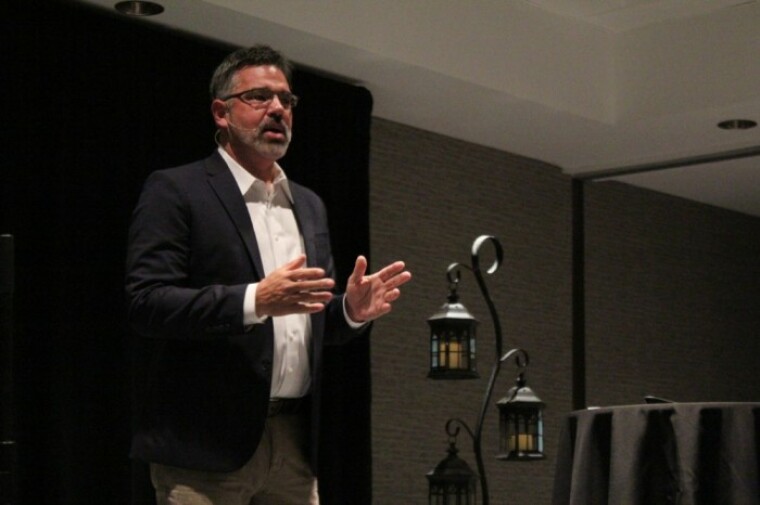Mark DeYmaz shares how churches can generate multiple sources of income by leveraging their assets

Prominent multiethnic church movement leader Mark DeYmaz is warning that tithes and offerings will no longer be enough to sustain healthy churches and suggests that congregations look for alternatives like creating for-profit businesses to generate more revenue.
DeYmaz, who founded Mosaic Church of Central Arkansas in 2001 and co-founded the Mosaix Global Network in 2004, will release in October his new book, The Coming Revolution in Church Economics: Why Tithes and Offerings Are No Longer Enough, and What You Can Do About It.
The book will expand on a chapter from his 2017 book, Disruption: Repurposing the Church to Redeem the Community. The 57-year-old author shared insights from his yet-to-be-released work while speaking at the Evangelical Press Association's Christian Media Convention this week.
"Right now, very few — I would say in my experience — less than 5 percent of churches are thinking about the future, that is, the coming disruption of economics," DeYmaz told a packed ballroom of Christian journalists, writers and publishers.
One sociological problem facing churches that will lead to the decrease in tithing and offerings, DeYmaz said, is the rapidly changing population.
By the 2030s, he stressed that the population will decrease in the United States due to fewer babies being born. With an aging population, he contended that many older churchgoers today will age out of the workforce and have less money to give to their churches. He noted that about 75 percent of the wealth in Christianity today is held by people who are 65 or older.
"Millennials and Gen X and those coming after do not think about money or give money the way boomers, older people do because most of the church has been built on a transactional model," he explained. "And the idea is to get more butts in the seat, right? Because more butts are in the seat, more bucks in a plate, right? Those days are gone."
Another issue he highlighted will be the emergence of artificial intelligence taking jobs away from people.
"AI, by 2030, will take away 12 to 22 percent of jobs in the world in the next 12 years," he continued. "That's an Oxford [University] statistic."
He pointed out that a friend of his is the pastor of a church in Baltimore, Maryland, that lost $100,000 overnight when the Baltimore-based corporation Under Armour laid off 400 people. Because of this, the pastor's salary and the church budget decreased and a number of church programs were cut.
"It's not that those 400 people won't be able to get other jobs, it's just how fast that happens," DeYmaz said.
As exponentially more families in America today are reliant on two or more streams of income than they were decades ago, DeYmaz said churches should be looking for ways to generate multiple sources of income.
"The American Church in the 21st century is living as if one paycheck — tithes and offerings — takes care of everything. But it doesn't," he asserted. "And we have to disrupt the way we think about what we're branding."
At Mosaic Church, they have a yearly budget of about $1.2 million, DeYmaz later told The Christian Post in an interview. Only 70 percent of that budget comes from tithes and offerings while the rest is generated through "smart economics."
Read more from "Mark DeYmaz shares how churches can generate multiple sources of income by leveraging their assets" on The Christian Post.